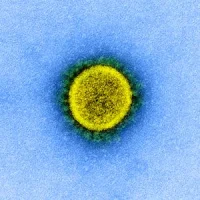A study was conducted to understand the effect of COVID-19 on patients who have received heart transplants and their treatment outcomes in the context of their immunosuppressed state. The primary outcome was to assess vital status, and the secondary outcome was to assess other characteristics such as lab values, state of immunosuppression, and treatment outcomes.
Heart transplant recipients are kept on immunosuppressive medications as part of the transplant management to minimise tissue rejection. Most often, heart transplant recipients have other comorbidities that further predispose them to COVID-19 infections.
The participants (n=28) in this study were all recipients of a heart transplant and had a laboratory-confirmed diagnosis of COVID-19 infection. The median age was 64, and the study was completed at an academic heart transplant center in New York between March 1 to April 24, 2020. Twenty-two patients were admitted to the hospital, and six were managed as outpatients.
A large majority of these patients had one or more pre-existing conditions such as hypertension (71%), diabetes (61%), and cardiac allograft vasculopathy (57%). Most patients (27[96%]) were on immunosuppressive medications. Twenty-two of them had their immunosuppressant medications discontinued (n=16 on mycophenolate mofetil) or the dose reduced (n=6 on calcineurin inhibitors).
Disease presentation included fever (19 [83%]), dyspnoea or cough (21 [91%]), and gastrointestinal symptoms (11 [48%]). Treatment regimen for COVID-19 included hydroxychloroquine (18 patients [78%]), high-dose corticosteroids (8 patients [47%]), and interleukin 6 receptor antagonists (6 patients [26%]). Some required ventilatory support.
Disease progression in COVID-19 appears to be triggered by the virus itself and the extreme immune response it invokes, characterised by cytokine storm as well as myocardial injury and even death. While immunosuppressive drugs in heart transplant patients compromise their immunity, it also appears to have a protective effect against cytokine storm. However, this protective effect needs to be studied further as the case fatality rate remained high.
Conclusions and Relevance
COVID-19 has infected over 3 million people and has a case fatality rate of over 7% in the general population as of May 2020. This study showed that 7 of 22 patients admitted to the hospital died during the study raising the case fatality rate to 25% in COVID-19 patients. This high case fatality rate though higher than the general population, could still be underestimated. This is because the study did not include heart transplant patients who were asymptomatic or had mild symptoms. This means many more patients could have been missed.
The study also concluded that the management of heart transplant patients with COVID-19 is very complex, and their treatment should be undertaken at appropriate transplant centres. The study suggested that this patient population needs to be closely monitored during recovery as well, especially while their immunosuppressive medications (stopped or reduced at the beginning) are reintroduced.
The unique role of a patient’s immune status in fighting COVID-19 could not be ascertained and needs to be studied further.
Source: JAMA Cardiology
Image Credit: iStock










